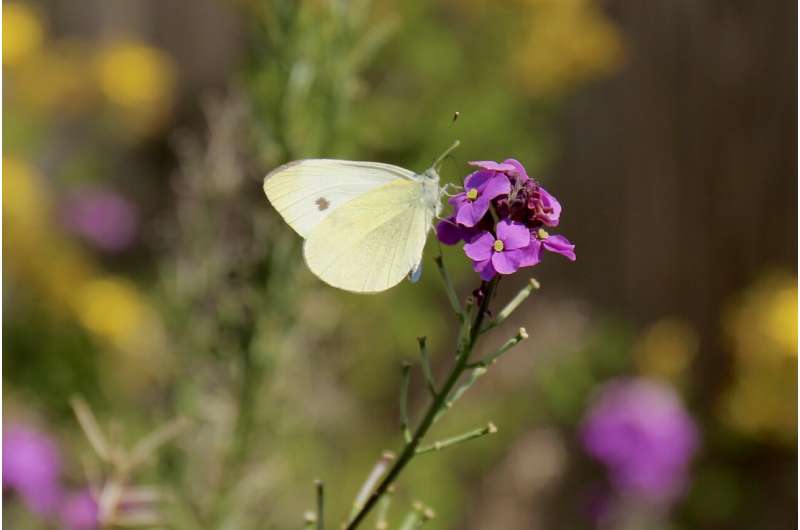Warmer Earth could see smaller butterflies that struggle to fly, affecting food systems

New UBC research has shown warmer temperatures can lead to smaller butterflies that collect less pollen and visit fewer flowers.
Dr. Michelle Tseng and recent graduate Erez Büyükyilmaz grew butterflies in the lab at different temperatures and found that the warmer the temperature, the smaller the butterfly, mimicking how increasing global temperatures due to climate change might affect the size of the insects. Then, using special equipment, they found smaller butterflies did not fly as far or as fast as the bigger ones, due to their smaller wings.
The researchers then collected 100 butterflies in the wild and measured their size and the amount of pollen on their faces. They found that the butterflies equivalent in size to those grown in the lab accumulated less pollen and visited fewer plants.
Butterflies are important pollinators, with insect pollinators needed for 75% of the world’s crops, says Dr. Tseng. If butterflies around the world are decreasing in size because of climate change, this could have serious repercussions for our food systems.
The research was published in Ecological Entomology.
Evidence found of butterflies using tails to distract predators from more vital parts
Erez Büyükyilmaz et al, Developmental temperature predicts body size, flight, and pollen load in a widespread butterfly, Ecological Entomology (2022). DOI: 10.1111/een.13177
Citation:
Warmer Earth could see smaller butterflies that struggle to fly, affecting food systems (2022, September 15)
retrieved 15 September 2022
from https://phys.org/news/2022-09-warmer-earth-smaller-butterflies-struggle.html
This document is subject to copyright. Apart from any fair dealing for the purpose of private study or research, no
part may be reproduced without the written permission. The content is provided for information purposes only.
For all the latest Science News Click Here
For the latest news and updates, follow us on Google News.

